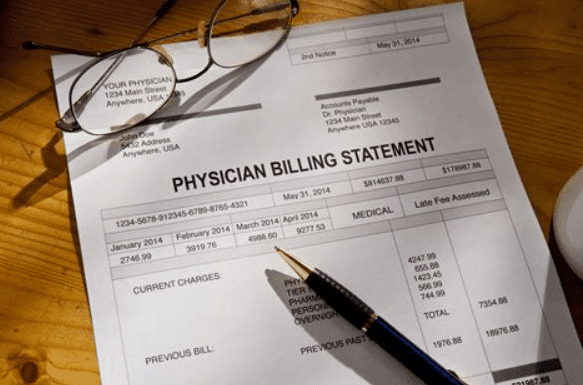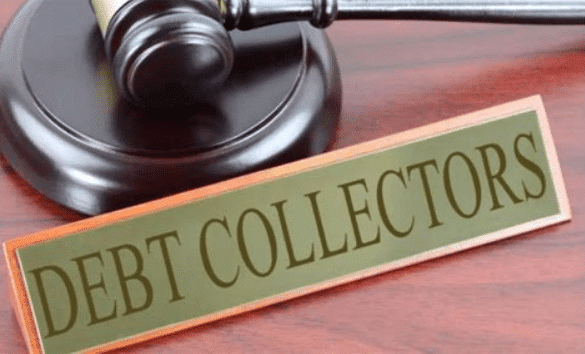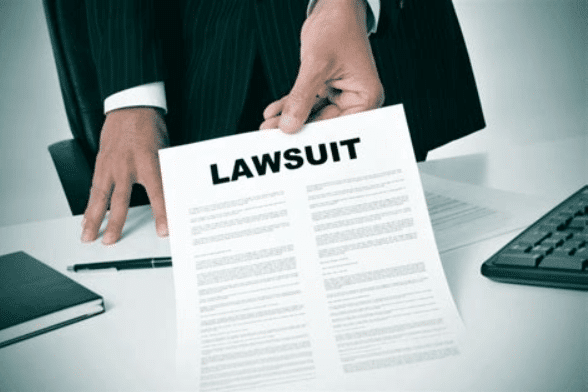Are you being sued by NRC Collections? Find out who Nations Recovery Center is and how to win against them in court. ZumaZip.com Wins!
The recent global pandemic has left many people cash-strapped and prompted some states to prohibit creditors and debt collectors from engaging in specific debt collection actions, including filing lawsuits. However, the pandemic has since abated, and many states have resumed normal operations and lifted many of these bans.
This means that lenders are likely to demand payment for overdue debts, including by means of enlisting the help of debt collectors like the Nations Recovery Center, NRC. If you’re a debtor, who has been sued in an unfair debt collection practice, listed below are the defenses you can use in court to beat the NRC collection agency.
Make the right defense the right way with ZumaZip.
About Nations Recovery Center
NRC is a third-party collection agency based in Atlanta established in 1991 to provide debt collection services to the banking, retail, insurance, commercial, and medical service industries. The company uses many debt collection methods, including asset and income investigations, skip tracing, insurance follow-ups, and payment monitoring in compliance with:
- The Fair Debt Collection Practices Act
- The GrammLeach-Bliley Act (GLBA), and
- The Health Information Portability and Accountability Act (HIPAA)
Proven Defenses to Challenge NRC Collection Agency in Court
If the NRC sues you for debt, there are several defenses you can use to challenge the lawsuit.
Many creditors transfer debts ‘as is’ to the NRC collection agency. They rarely verify if the creditor provided the correct balances or credit any payments the debtor has made. Also, they may not provide documents showing the date you incurred the debt. If the agency can’t give this information, the debtor can argue the case in their favor as these documents are crucial to verifying the actual amount owed.
Violation of FDCPA Regulations
The Fair Debt Collection Practices Act (FDCPA) protects consumers against aggressive debt collection practices. Unfortunately, the NRC is known for violating some of the FDCPA regulations. The Better Business Bureau, BBB, has responded to up to 61 complaints against the agency. Most of the complaints allege problems associated with debt collection and billing, while others involve civil litigation.
Knowing your rights under the FDCPA is critical to identifying when the NRC has violated federal law, which is an excellent defense in court. Listed below are more methods a debtor can consider when the collection agency violates FDCPA regulations:
Sue the debt collector in state court: In such a lawsuit, the debtor must prove that the agency violated FDCPA regulations. If successful, you’re entitled to $1,000 in statutory damages or more if you’ve suffered harm due to the violations.
Sue the agency in a small claims court: This is a better option for consumers who don’t have the time for a full-blown state court lawsuit or don’t want to hire an attorney. A small claims court action allows individuals to argue their case without an attorney and ensures an expedited court process. The debtor fills out simple documentation to start the case, and hearings are held within two months of filing the claim. The only downside of filing a small claims court action is that the amount of damages is limited.
Report the violations to a government agency: The Federal Trade Commission, FTC, is tasked with overseeing debt collectors and ensuring that the FDCPA regulations aren’t violated. The debtor can file an online complaint with the FTC highlighting any such violations. Similarly, the Consumer Financial Protection Bureau is another government agency consumers can use to report FDCPA violations.
Report state law violations to the state’s attorney general: Aside from violating the FDCPA regulations, the agency may be breaking state laws. If so, the debtor should contact the state’s attorney general to obtain guidance on possible actions. The attorney general may decide to prosecute on behalf of the state if it receives many complaints against the agency in question.
Respond to debt collection lawsuits in 15 minutes or less with ZumaZip.
No Proof of Debt Owed
To sue, the debt collector must have the paperwork outlining the agreement between the debtor and the original creditor. For example, if collecting credit card debt, the contract should be in the form of a cardmember agreement showing:
- The state law as applies to the case
- How much the debt collector can collect in interest
- Attorney fees
In many cases, NRC debt collectors don’t have this paperwork and may never collect it from the original creditor. As a result, they use regular billing statements to pass off as cardmember agreements. These statements aren’t adequate substitutes for a cardmember agreement or any other contractual agreements you entered with the original creditor. The debt collector will find it challenging to convince the court to accept these documents as evidence.
Statute of Limitations Lapsed
The statute of limitations is the period the debt collector or creditor has to file a legal claim. Once this time lapses, the law bars the creditor or debt collector from filing a lawsuit. The statute of limitations varies state by state.
No Standing Defense
Standing means a business. In this case, a debt collector has a legal interest in debt-collection lawsuits. The NRC must prove it legally owns your debt. This is because the debtor didn’t enter a contract with the agency in question; the creditor did. It can only prove legal interest by showing that the creditor assigned the agency to collect debt on their behalf. If the agency can’t provide this proof, the case won’t hold.
Use ZumaZip to response to debt collectors fast.
Additional Defenses You Can Use to Beat NRC Collection Agency
If you don’t owe a debt, this can be used as a defense in court. For example, you may have filed for bankruptcy, and some debts have been discharged. If the agency is still suing you for these debts, you can argue that you’ve filed for bankruptcy. Also, some debts may be legally invalid due to fraud, coercion from a contracting party, or corruption during negotiations.
With this information, you should have one or even multiple defenses that you can use to beat NRC in court. If you have the resources, It can also help if you consult a local attorney to determine and argue the most effective defenses to your lawsuit.
What is ZumaZip?
ZumaZip is a convenient solution designed to streamline your response to a debt collection lawsuit. Here’s a breakdown of what you can expect when you use ZumaZip:
Firstly, you’ll access our user-friendly web application, which guides you through the process step by step. You’ll be prompted to answer a series of questions related to your specific situation. Once you’ve completed the questionnaire, you have the option to either print out the finalized forms and mail them to the appropriate courts yourself, or you can opt to utilize ZumaZip’s services to file them on your behalf. Additionally, if you choose this option, an attorney will review your document for added peace of mind.
If you’re seeking guidance on how to effectively respond to a debt collection lawsuit, ZumaZip can provide the assistance you need. Feel free to explore our FAQs for more information on what ZumaZip has to offer.
What if I haven’t been sued yet?
If you’ve only received a collections notice, but not a lawsuit, the best way to respond is with a Debt Validation Letter. When a debt collector contacts you in any way, whether it’s by phone or mail, you can respond by formally requesting a debt validation with a Debt Validation Letter . This letter notifies the collector that you dispute the debt and forces them to provide proof you owe the debt. They can’t call you or continue collecting until they provide validation of the debt. This flowchart shows how you can use a Debt Validation Letter to win.
Get started with a Debt Validation Letter here.
How to Answer a Summons for debt collection in all 50 states
Here’s a list of guides on how to respond to a debt collection lawsuit in each state:
- Alabama
- Alaska
- Arizona
- Arkansas
- California
- Colorado
- Connecticut
- Delaware
- Florida
- Georgia
- Hawaii
- Idaho
- Illinois
- Indiana
- Iowa
- Kansas
- Kentucky
- Louisiana
- Maine
- Maryland
- Massachusetts
- Michigan
- Minnesota
- Mississippi
- Missouri
- Montana
- Nebraska
- Nevada
- New Hampshire
- New Jersey
- New Mexico
- New York
- North Carolina
- North Dakota
- Ohio
- Oklahoma
- Oregon
- Pennsylvania
- Rhode Island
- South Carolina
- South Dakota
- Tennessee
- Texas
- Utah
- Vermont; Vermont (Small Claims court)
- Virginia
- Washington
- West Virginia
- Wisconsin
- Wyoming
Guides on how to beat every debt collector
Hey there! Facing off against a debt collector can feel like a daunting challenge, but fear not! We’re here to help you navigate through it all with our handy guides designed to assist you in beating every debt collector you encounter. Whether you’re facing a new lawsuit or dealing with a persistent collector, we’ve got your back. Stay positive, stay informed, and let’s tackle this together!
- Absolute Resolutions Investments LLC
- Accredited Collection Services
- Alliance One
- Amcol Clmbia
- American Recovery Service
- Asset Acceptance LLC
- Asset Recovery Solutions
- Associated Credit Services
- Autovest LLC
- Cach LLC
- Cavalry SPV I LLC
- Cerastes LLC
- Colinfobur
- Covington Credit
- Crown Asset Management
- CTC Debt Collector
- Cypress Financial Recoveries
- Delanor Kemper & Associates
- Eagle Loan of Ohio
- Educap
- Estate Information Services
- FIA Card Services
- Forster & Garbus
- Freshview Solutions
- Fulton Friedman & Gullace LLP
- Harvest Credit Management
- Howard Lee Schiff
- Hudson & Keyse LLC
- Integras Capital Recovery LLC
- Javitch Block
- Jefferson Capital Systems LLC
- LVNV Funding
- Mannbracken
- Mariner Finance
- Medicredit
- Michael J Adams PC
- Michael J Scott
- Midland Funding LLC
- Mullooly, Jeffrey, Rooney & Flynn
- Mountain Land Collections
- MRS Associates
- National Collegiate Trust
- Nationstar Foreclosure
- Northstar Capital Acquisition
- NCEP LLC
- NRC Collection Agency
- OneMain Financial
- Palisades Collection LLC
- Pallida LLC
- Paragon Revenue Group
- Pinnacle Collections Agency
- PMAB LLC
- Portfolio Recovery Associates
- Provest Law
- PYOD LLC
- Reunion Student Loan Finance Corporation
- Revenue Group
- Regents and Associates
- RSIEH
- Salander Enterprises LLC
- Second Round Sub LLC
- Security Credit Services
- Sherman Financial Group
- Suttell and Hammer
- T-Mobile
- Transworld Systems
- Tulsa Teachers Credit Union
- UCB Collection
- Velo Law Office
- Velocity Investments
- Waypoint Resource Group
- Weinberg and Associates
- Wolpoff & Abramson
Settle your medical debt
Having a health challenge is stressful, but dealing medical debt on top of it is overwhelming. Here are some resources on how to manage medical debt.
- Am I Responsible for My Spouse’s Medical Debt?
- Do I Need a Lawyer for Medical Bills?
- Do I Need a Lawyer to Fight Medical Bill Debt?
- Does Bankruptcy Clear Medical Debt?
- How Much Do Collection Agencies Pay for Medical Debt?
- How to Find Medical Debt Forgiveness Programs
- Is There a Statute of Limitations on Medical Bills?
- Medical Debt Statute of Limitations by State
- Summoned to Court for Medical Bills — What Do I Do?
- Summoned to Court for Medical Bills? What to Do Next
Stop calls from Debt Collectors
Do you keep getting calls from an unknown number, only to realize that it’s a debt collector on the other line? If you’ve been called by any of the following numbers, chances are you have collectors coming after you, and we’ll tell you how to stop them.



































